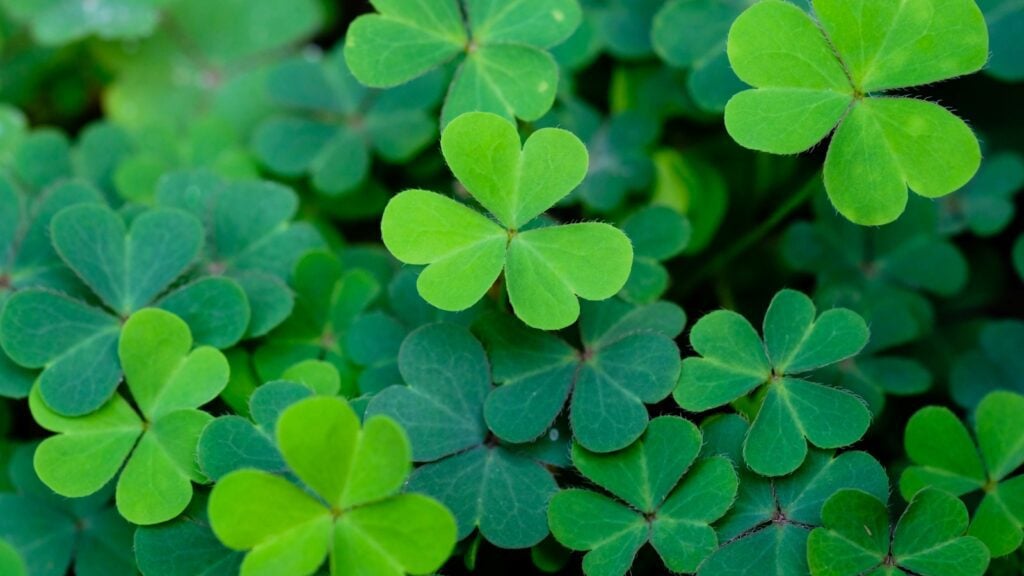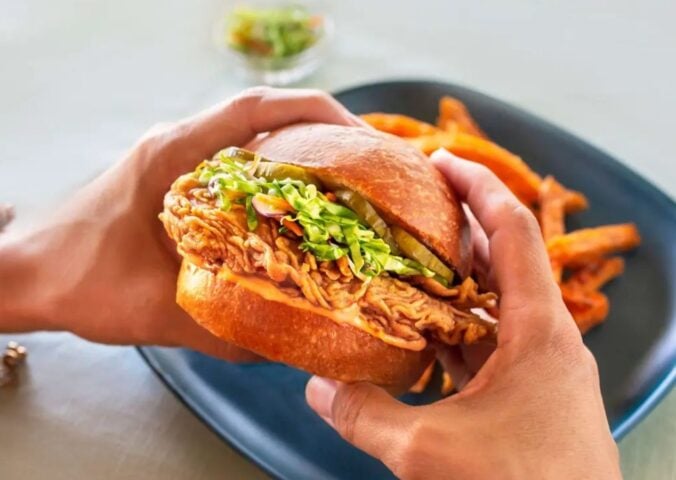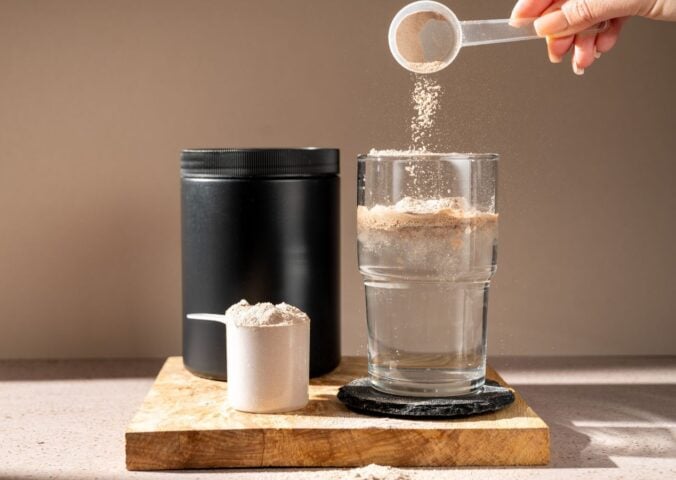Pretty much all vegans will have racked up a good many hours pretending to laugh at the same jokes time and time again. But now one of the age-old favorites (“So do you just eat grass then?”) is actually (almost) a reality.
A new vegan protein called “Leafu” is in development. Made from leaf protein, it’s a highly nutritious, protein-rich food made for human consumption.
“We know leaves have protein, just take a look at a cow,” Rebecca Knowles, one of Leafu’s proponents, tells Plant Based News (PBN). “The thing is, as human beings, it’s hard to eat enough leaves to get a good amount of protein from them; plus, some leaves are very hard or even impossible to digest – grass being a good example of that.”
Leafu can be made from any non-toxic leaves: edible weeds such as nettles; agricultural by-products such as pea, bean, and rape leaves; and even from clover and grass. It’s created by a process called leaf fractionation, which renders the leaves fit and palatable for human consumption.
According to Knowles, Leafu contains all the essential amino acids and is rich in micronutrients, notably iron and beta-carotene. Its protein content is around 48-50 percent, compared to soybeans (38 percent), peas (20-30 percent), and wheat (10-15 percent).
“It is often said, especially in Scotland, where 80 percent of our agricultural land is permanently under grass, that the only way to produce food from grassland is to graze it and then eat those animals,” Knowles tells PBN.
“Leafu cuts out the ‘middle animal’ by providing a way for high-quality protein to be produced directly from grassland without having to go through the body of an animal,” she adds.
The future of Leafu
Leafu is currently being produced by Stockfree Farming, an organization working to move agriculture away from animals. They are working in conjunction with researchers at Scotland’s Rural College.
While it’s still in its early stage of development, Knowles says they have had interest from food producers around the world.
A key benefit of Leafu is its abundance. “In the UK, we are surrounded by this protein,” Knowles says, “It is easy to produce, and doesn’t involve chopping down any rainforests, nor does it require artificial fertilizers, pesticides, or herbicides.”
Due to the fact that it’s made from raw ingredients that haven’t yet been eaten by humans, Leafu will need to go through a food approval process in the UK.






